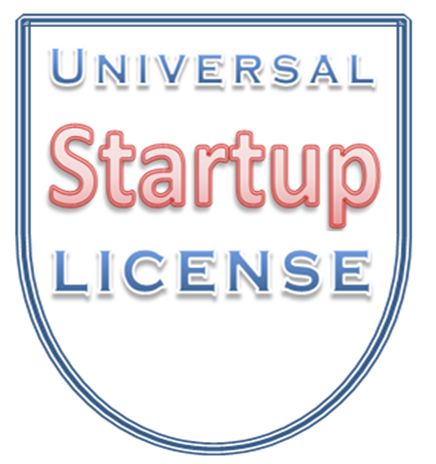Is restricting this pursuit an infringement upon the freedom of the individual? Should we make this something that anyone should be able to do, wherever they are in the world?
The things that would normally prevent this would be the requirement for:
- an unaffordably expensive ‘license fee’ (for which the licensing authority may not necessarily incur any costs other than those of collecting the fees)
- a surety (a large sum set aside for settling creditors’ claims)
- insurance (set up for similar reasons to the surety)
There’s nothing wrong with requiring a license to practice as a doctor, with all the safeguards that such a profession entails, but what about someone who has written an iPhone app in their bedroom and scrapes a living from the proceeds?
Should that be considered to be ‘outside the law’ unless the iPhone app author pays for a ‘smartphone programming license’ or ‘phone app vendor insurance’?
When we complain that some places seem less suitable for people to start startups than others, we really need to ask why. In Europe, as far as I know, only the UK matches the US ‘just do it’ policy for individuals wanting to start startups. Everywhere else (in the world) the policy is based on the ‘a costly license to trade is the default option’ rule (although the extent to which the rule is observed or enforced is an issue).
Maintaining cost and regulatory barriers which inhibit ‘personal private enterprise’ do not eliminate it. They merely prevent it making a bigger contribution to society.
Maybe as society starts to ‘feel the pinch’ and technology further erodes all other practical barriers to starting a startup, there will be a stronger call for those last unnecessary barriers to be taken down.
If, as governments are all telling us, they genuinely believe that ‘innovation will save us’ and that startups are the engines driving both innovation and job growth, perhaps there will be enough of a ‘head of steam’ behind startup formation to sweep away the accumulated encrustation of bureaucratic obstacles that have been holding back would-be entrepreneurs all over the planet.
If we recognise such a thing as a right to work, why can’t we also recognise a right to self-employment, rather than accepting an implicit mandate to become an employee as the only easily accessible means of exercising a right to work?
And if we do recognise a right to self-employment, in order to proceed to the right to starting a startup, we need to do two other things:
- recognise the right for the self-employed to employ others, providing we can satisfy the relevant employment legislation, which, by the way, should not be constructed with the intention or likelihood that it should make it impossible, difficult, or unreasonably expensive for an individual (rather than a large, well-funded business) to employ another in the business of their choosing
- recognise that the individual wanting to exercise their right to start a startup, should not be unreasonably constrained in their choice of type of business (instead of this right ‘only applying to a restricted list of types of business’ it should be the other way round, and only occupations with widely accepted requirements for qualifications should be allowed to ‘set eligibility criteria’)
As well as stripping away impediments to the individual starting a startup, we should also consider that the introduction of the right to found startups should be accompanied by the following encouragements:
- taxation should favour startups, which are now becoming recognised as the leading job creators
- legislative exemptions should strip away bureaucracy, so that startups are not spending more time filling in forms (even online forms) than creating value and serving customers


